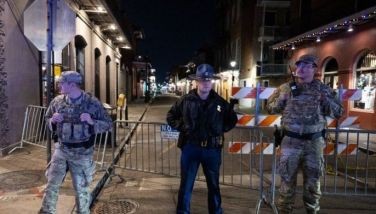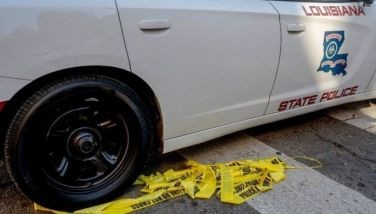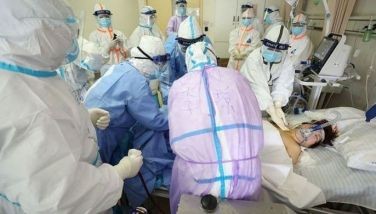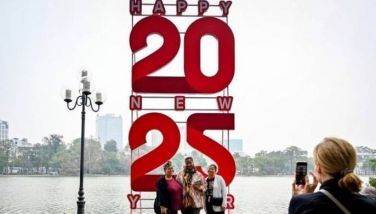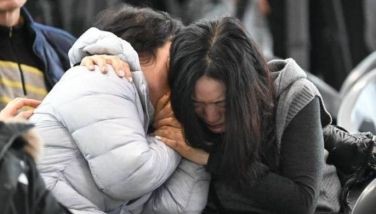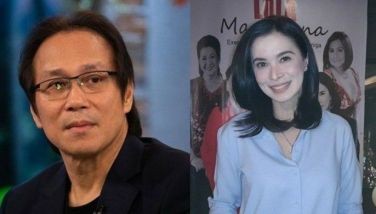EU ministers blame Russia for Ukraine interference
LUXEMBOURG - Deploring what they called yet more Russian interference in Ukraine, European Union foreign ministers debated yesterday if further sanctions against Russia should be imposed.
The coordinated action of armed pro-Russian groups occupying government buildings in eastern Ukraine clearly "is something that is being planned and brought about by Russia," and needs to be met with further sanctions, British Foreign Secretary William Hague said ahead of a meeting with his EU counterparts.
In retaliation, the 28 EU ministers could decide to add more names to a list of Russian officials whose assets in EU member nations have been frozen. But a dramatic ratcheting up of sanctions wasn't expected — at least not right away.
Under European Union rules decisions on sanctions must be taken unanimously by all member states.
Frans Timmermans, the Dutch foreign minister, said it was too early to impose more sanctions, but that the EU should be prepared. French Foreign Minister Laurent Fabius said that if negotiations planned in Geneva later this week fail to get Russia to back off in Ukraine, the trade bloc's leaders could impose further sanctions at a snap summit next week.
"We want to try to reach a political solution and de-escalation" at Geneva, Fabius said. "The European Union will participate along with Ukraine, Russia and the United States. We strongly hope to address the substantive issues there."
To aid Ukraine's beleaguered government, EU foreign ministers passed a pair of proposals. The first allows the granting of up to 1 billion euros ($1.4 billion) in loans to cover Ukraine's critical balance of payments needs, provided the government in Kiev commits itself in advance in writing to economic and public financial reforms.
The ministers also agreed to temporarily abolish or reduce customs duties on Ukrainian imports. The EU, the world's largest trade bloc, accounts for about one third of Ukraine's external trade, and an end to tariffs would save Ukrainian exporters almost 500 million euros a year, according to the EU's executive arm.
Russia has denied involvement in the escalation of armed violence in eastern Ukraine, but the EU officials noted events there have echoed what happened in the Crimean Peninsula before Russia annexed it.
"The problem is it looks very, very similar to what happened previously in the Crimea. So you know, if it looks like a horse and it walks like a horse, it's usually a horse and not a zebra," said Timmermans.
The ministers did agree to add four names to the list of people whose assets in the European Union have been blocked for allegedly embezzling Ukrainian state property under fugitive pro-Moscow president Viktor Yanukovych.
The new names, which brought the total to 22, including Yanukovych himself, are to be made public Tuesday.
On Thursday, the European Union's foreign policy chief, Catherine Ashton, is to meet with her US, Russian and Ukrainian counterparts in Geneva. In remarks to reporters before chairing yesterday's meeting of EU ministers, she did not explicitly accuse Russia of engineering the armed unrest in eastern Ukraine, and didn't mention the word "sanctions."
"What we need to do is use the meeting in Geneva to start talking about how to de-escalate the situation," Ashton said. "It's absolutely vital we find a suitable way through this that is going to bring peace and stability to the whole country."
- Latest
- Trending














